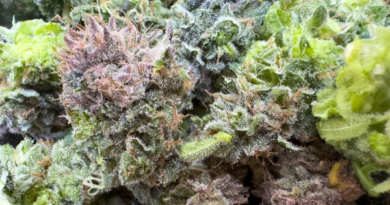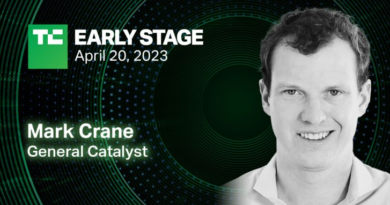Three counterintuitive 2023 predictions about Musk, SFB and even Kraft
Bradley Tusk — who spent his early career in Democratic politics and later became a consultant and lobbyist for private companies battling regulators — spends much of his time these days as a venture capitalist. But while Tusk is a generalist, he insists he isn’t interested in just any startup; his expertise, he says, is at the intersection of tech and regulation, and his firm adds the most value to startups in sectors where changing regulations are bound to alter the scale of the opportunity they are chasing.
As a service to Tusk Ventures’s current portfolio — and a kind of calling card for potential founders — Tusk every year puts together some thoughts about the changes he sees coming over the next 12-month period. Because he’s often proven right in retrospect, we hopped on a call with him late last week to discuss some of his many 2023 predictions, and these three stood out to us in particular, so we thought we’d share them here.
1) Major CPG brands start selling cannabis products, wiping out a lot of cannabis startups that were operating in the relative shadows. Here Tusk is, discussing why:
Big brands [sell] alcohol all of the time and cannabis, many people would argue, is a less harmful substance than alcohol. We’ve got this real disconnect between the close to two-thirds of the states and the federal government, where cannabis is legal recreationally and medicinally. Yet it’s on Schedule 1 at the DEA [along with] heroin and meth and cocaine . . . which really doesn’t make a lot of sense, especially as states keep legalizing it entirely.
President Biden has said, ‘Let’s remove this from Schedule 1.’ Once that happens all of a sudden all kinds of interstate commerce that so far has not been allowed will open up. So you’ll be able to have real banking, trucking of [plants] across state lines, advertising . . . All the things that a normal, really big company — a Kraft or Unilever and Anheuser-Busch or Philip Morris — might engage in, they can’t really do under the current system, but once the federal restrictions are loosened, then all of a sudden it opens up for them.
One [question I’ve asked cannabis founders over the years is] how are they going to compete with Unilever? Why would Unilever choose to buy them as opposed to just burying them? And most of the time, the answer is they can’t [compete]. They’re really just racing against the clock, hoping the federal government doesn’t actually do the right thing. But I think once cannabis goes off Schedule 1, and I don’t know if it happens in six months or two years, big companies will get into the game [because] there’s money to be made. And a lot of cannabis startups that were highly valued or overvalued or that traded at really high multiples on the Canadian stock exchange are going to feel a lot of pain.
2) Instead of drive further crypto regulation, Sam Bankman-Fried and the abrupt implosion of FTX actually winds up playing a minor role in any new regulations that get enacted (though Tusk does think we’ll see more regulation at the state and federal level in the next 12 months). Here’s Tusk:
When the FTX thing blow-up started happening, my take was, ‘Okay, this is going to lead to a lot of very harsh crypto regulation that will be bad for the sector, because SEC chief Gary Gensler has been pushing for this for a long time and it hasn’t happened yet because crypto is very popular among a lot of actual real people.’ I thought FTX would give him the cover to move very aggressively against the industry as a whole.
In a weird way since then, as the story gets crazier and crazier and just more and more like Sam Bankman-Fried was just a criminal mastermind who was defrauding people out of tens of billions of dollars and [that this debacle] is not something specifically related to crypto per se, it actually shifts the argument again. It [shifts from], ‘This whole industry is out of control’ to ‘this person was out of control.’ It’s almost gotten so extreme that it’s actually helping [tamp down talk of overregulation].
3) Twitter ends up costing Musk far more than the $44 billion he and his investors paid for it . . .
What Musk did is consistent with things that we’re seeing across the cultural zeitgeist right now, which is in this world with 24/7 media coverage and social media activity, the people who really need attention and can’t get enough of it just have to keep doing more and more outrageous things to try to get it right. We saw that with Donald Trump. We saw that with Kanye West. And the main reason why Musk bought Twitter is so that people would be talking about him, just as we are right now. From that standpoint, I suspect he’s achieved his goal.
What worries me for him is when you look at the market cap of Tesla, for example, it is significantly higher than Toyota or General Motors, companies that sell a lot more cars. Tesla makes a great car and they’re growing and it’s okay for them to lean into the future. But the differential between what [Tesla] probably should be valued at and where it is valued is that Elon Musk hype and pixie dust. He managed to create such an image of being so far in the future and so much better than everyone else that really drives retail investment in the stock. The same is true of SpaceX. While that’s still a private company, I saw a piece yesterday saying that it’s now valued at $140 billion, [yet] there’s no way SpaceX could be [worth] $140 billion given its revenue. So his genius in some ways is that he manages to create this perception that what he’s doing is so innovative and so unique, and that only he can do it; it drives tremendous amounts of value and investment toward his companies.
The really big risk with Twitter is that every time he does something really high profile and public, he puts that reputation on the line. He has taken over Twitter, which no one has really ever figured out how to make it a successful business, and now it’s in his hands. And so far, the ideas that he’s put out there don’t sound that new or interesting to me; they feel like variations of things that people have already done before in different ways. And if he does not succeed with Twitter, the question is, does it puncture the balloon for Tesla, and SpaceX and all his other projects? He may have paid $44 billion for Twitter, but ultimately, this could cost him $100 billion or more if there’s a risk that Tesla and SpaceX and other companies that he owns lose value because he’s exposed as being a mere mortal.
. . . and no, it doesn’t create great opportunities for startups looking to capitalize on the chaos at Twitter, per Tusk. More here:
There’s just not a great revenue model for all of this to begin with. To make matters worse for them, I still think that there’s a risk eventually that Section 230 of the Telecommunications Decency Act does get changed or repealed. Right now, it exempts platforms from liability from content posted by the user, so I can defame you on Twitter, and you could sue me personally but you couldn’t sue Twitter. And as a result, Twitter, Facebook, all the platforms, their real economic incentive is to move toward negative and toxic content, because as much as we hate it, that drives eyeballs and drives clicks and thus drives advertising rates and revenue. So effectively, the lack of liability by the platforms is creating a world where the internet has to be as toxic and awful as possible.
But if [we repeal] Section 230, it’ll be a lot like what happened with the tobacco companies beginning in the 1980s, where all of a sudden they were vulnerable to litigation and started receiving these multibillion-dollar judgments, and as a result, they felt real economic pain and had to finally get a hold of their [marketing practices] because it was costing them more money than otherwise. Right now Facebook will pay the little fines that it gets from the FCC, because ultimately, they make so much money driven by negative content. Repealing Section 230 would change that.




